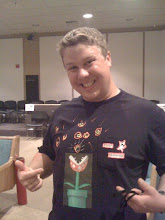
What is success? What does it mean to be a success? How do you measure that? Could someone who doesn't have a lot of money still be considered successful? First, let's define success. Success as defined by dictionary.com is, "The attainment of wealth, position, honors or the like as well as a favorable performance or achievement."
Some people measure success based on the amount of things they have. For them, their motto is, "He who dies with the most toys wins." So they work as hard as they can to get as much as they can. They collect real estate, cars, boats, planes, the latest & greatest technology. To an extent, this is success. As we defined, it is the attainment of wealth. But, as Christians, its not what success is supposed to be about. James 1:9-11 says, "The man in humble circumstances ought to take pride in his high position. But the one who is rich should take pride in his low position, because he will pass away like a wild flower. For, the sun rises with scorching heat and withers the plant. It's blossom falls and it's beauty is destroyed. In the same way, the rich man will fade away even while he goes about his business (NIV)."
After "Google-ing" success I found that other people (mostly a lot of the self-help, motivational speaker, business men) measure success not based on how much they have, but base it on their strength of character and the legacy they leave behind. This also fits in with our first definition, it's the attainment of position as well as a favorable performance. While this is closer to the truth, I still don't think this is it. This still suggests that success is about us and what we have.
So if we're not supposed to measure success based on what we have, then what do we base it on? Well, that's the big question. Join us tomorrow night as we finish up 2 Samuel and look at how successful King David was. He went from being a shepherd boy to being God's anointed king of Israel, rich, powerful & famous. But is that what made him successful? We'll see how he measured success and figure out how we should measure success. I hope to see you all there.





